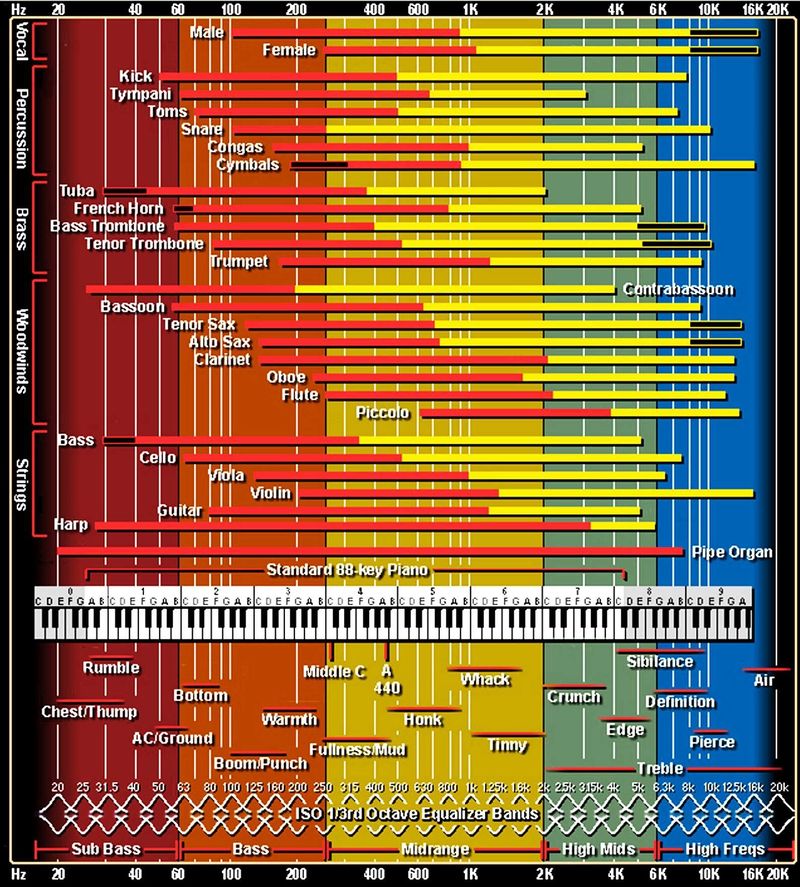This is the wiki for products made by Fractal Audio Systems, maintained by members of the community.
Difference between revisions of "Describing sound"
Jump to navigation
Jump to search
m (edited for readability) |
m (edited for readability) |
||
| Line 1: | Line 1: | ||
| − | When communicating, a common nomenclature for describing sound can be beneficial. It ensures we're all talking about the same thing. When you say <q>honk</q> and I say <q>honk</q>: if we're not both talking about the frequencies that occur between 400 and 1000 Hz on the audio spectrum, we're going to have a hard time communicating. Here is a chart | + | When communicating, a common nomenclature for describing sound can be beneficial. It ensures we're all talking about the same thing. When you say <q>honk</q> and I say <q>honk</q>: if we're not both talking about the frequencies that occur between 400 and 1000 Hz on the audio spectrum, we're going to have a hard time communicating. |
| + | |||
| + | Here is a chart of standard audio terms: | ||
[[File:EQChart.jpg|800px]] | [[File:EQChart.jpg|800px]] | ||
| + | |||
| + | Additionally, see <q>[[EQ#More information|More information]]</q> in the EQ page for… um… more information. | ||
| + | |||
| + | Or watch these videos… | ||
[[video:Wampler-DescribeGuitartone]] | [[video:Wampler-DescribeGuitartone]] | ||
Revision as of 19:00, 25 February 2024
When communicating, a common nomenclature for describing sound can be beneficial. It ensures we're all talking about the same thing. When you say honk
and I say honk
: if we're not both talking about the frequencies that occur between 400 and 1000 Hz on the audio spectrum, we're going to have a hard time communicating.
Here is a chart of standard audio terms:
Additionally, see More information
in the EQ page for… um… more information.
Or watch these videos…
